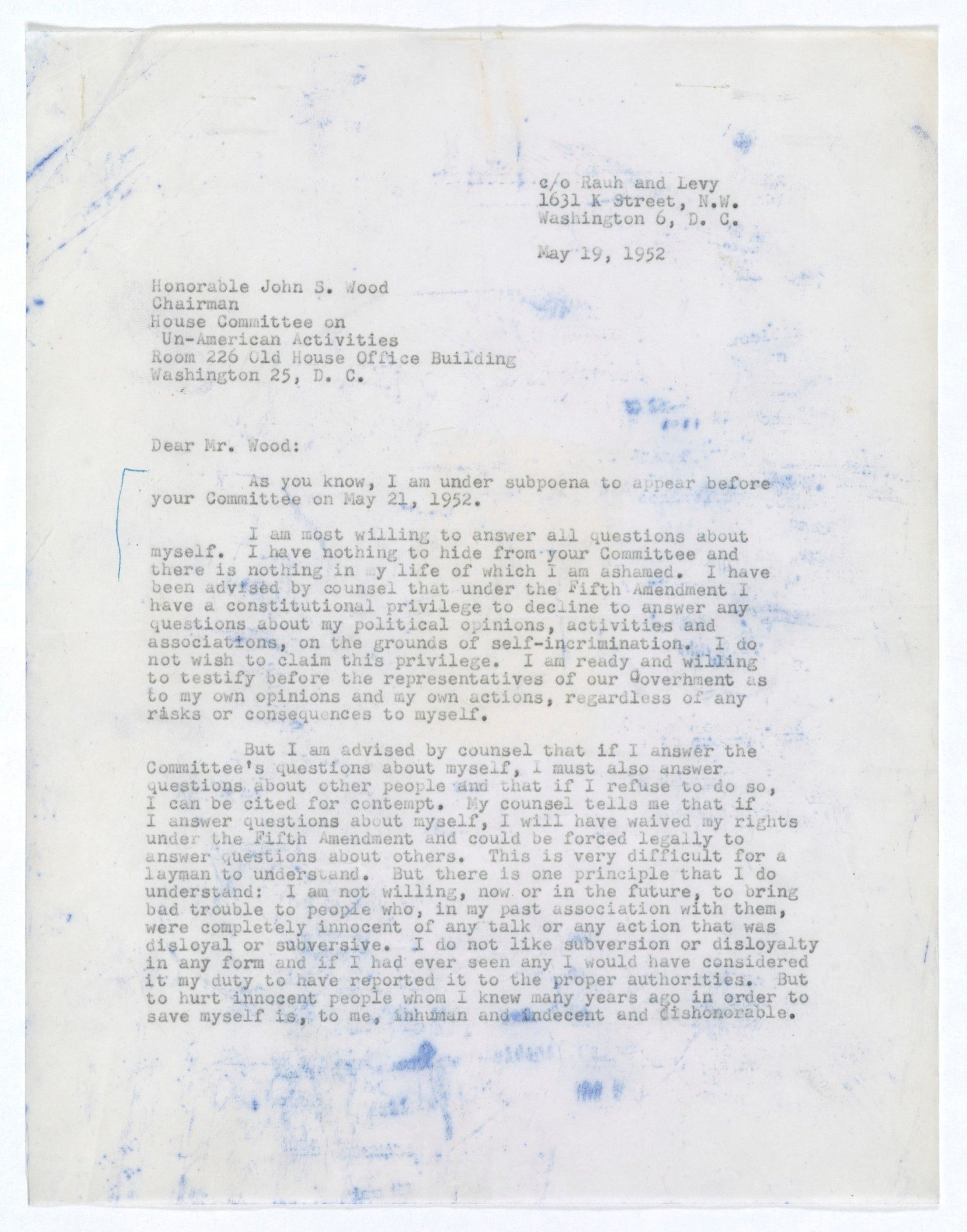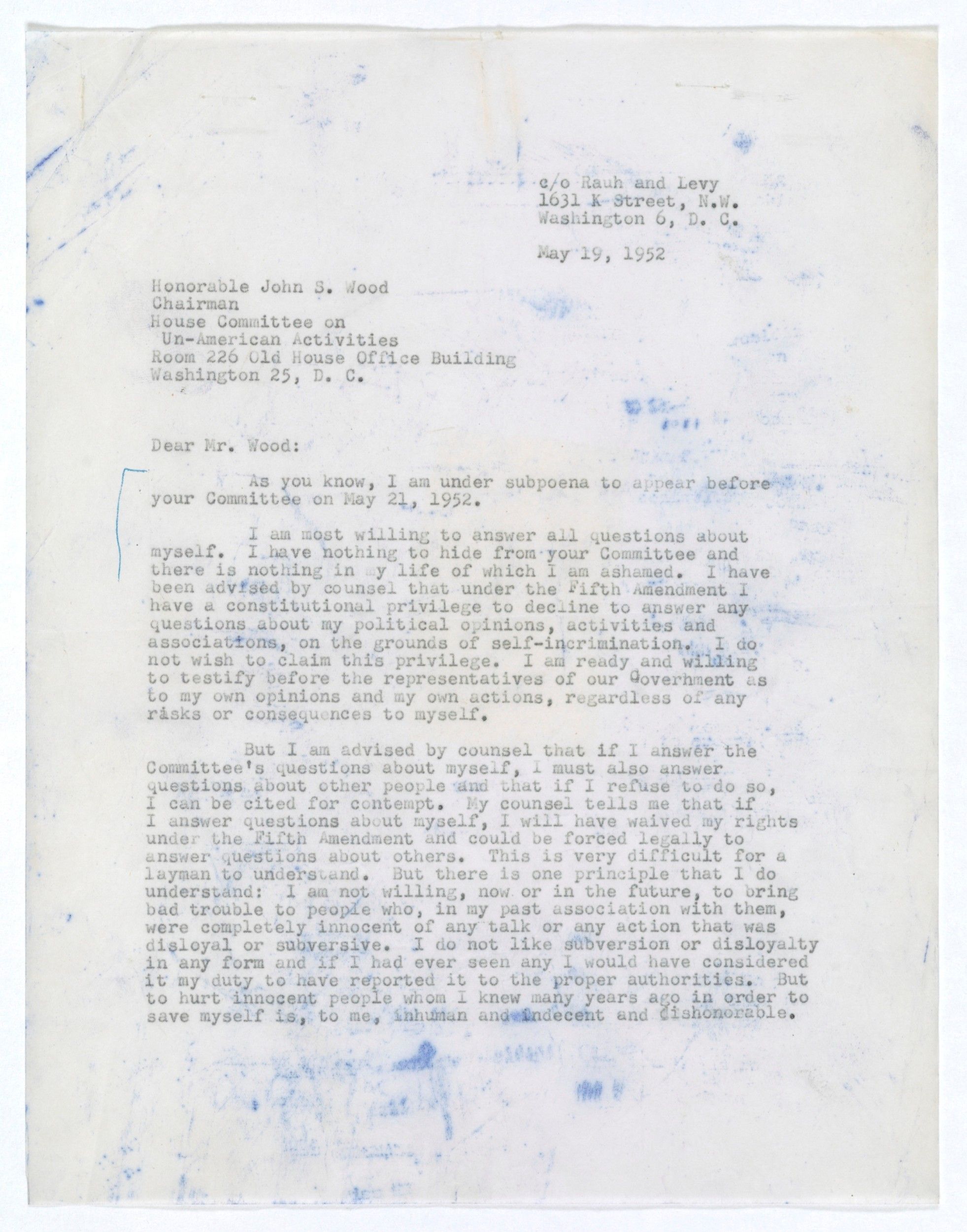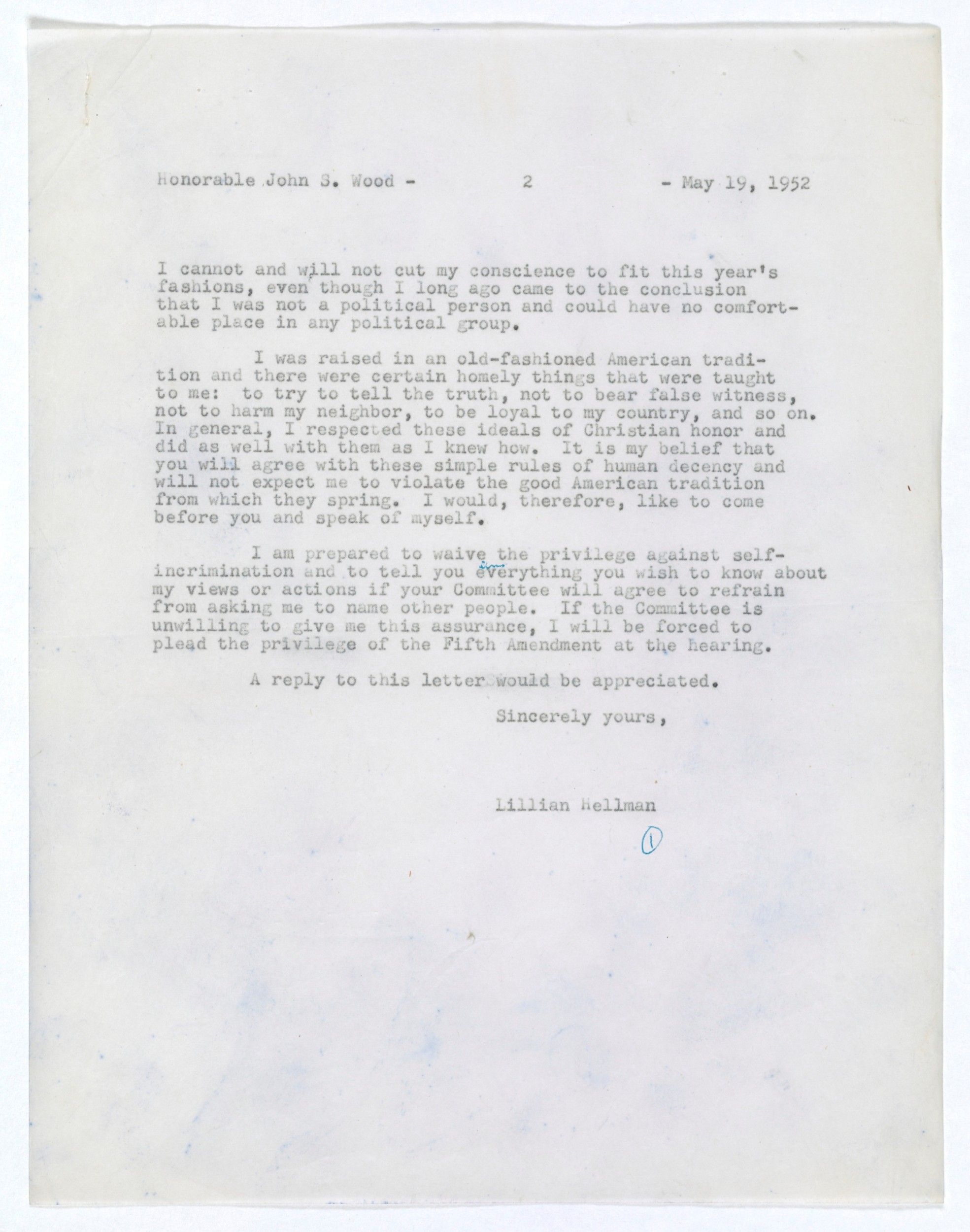Analyzing the 5th Amendment Right Against Self-Incrimination
Focusing on Details: Discussion Topic
All documents and text associated with this activity are printed below, followed by a worksheet for student responses.Introduction
Read and analyze Ms. Lillian Hellman’s letter to the Committee on Un-American Activities and answer the questions below.Name:
Class:
Class:
Worksheet
Analyzing the 5th Amendment Right Against Self-Incrimination
Focusing on Details: Discussion Topic
Examine the documents included in this activity and write your response in the space provided.
List the rationale or arguments Miss Lillian Hellman presents to support a decision not to invoke her Fifth Amendment privilege. List the rationale or arguments Miss Lillian Hellman presents to support a decision to invoke her Fifth Amendment privilege.
Your Response
1
Activity Element
Page 1

Conclusion
Analyzing the 5th Amendment Right Against Self-Incrimination
Focusing on Details: Discussion Topic
Consider the following questions as you analyze the implications of the Fifth Amendment:- Some have suggested that invoking the Fifth Amendment is equivalent to admitting guilt. How can an invoking of the Fifth Amendment be seen both as an admission of guilt and as a protection for the innocent?
- Why did the First Congress codify this right within the Bill of Rights? Why was it so important to them and why does it continue to have significance today?
- If subpoenaed as Miss Hellman was, what would you do? Would you testify against yourself and your family, friends, coworkers, or classmates?
Your Response
Document
Letter to the House UnAmerican Activities Committee (HUAC) from Lillian Hellman Regarding Testimony
5/19/1952
Playwright Lillian Hellman sent this letter to the House Un-American Activities Committee (HUAC) in response to being subpoenaed to appear before the Committee. In her letter she states that her legal counsel informed her that if she answered any questions about her life, she would waive her rights under the Fifth Amendment of the U.S. Constitution, and thus be forced to answer questions about other people that she knew. She notes she is opposed to being required to answer questions about others, but would answer questions about herself.
Additional details from our exhibits and publications
The Fifth Amendment provides protections to accused criminals, including the right against self-incrimination. During the “red scare” of the 1950s, the House UnAmerican Activities Committee subpoenaed film industry members and required that they answer questions about themselves and others who may have been communists. Although she was a playwright, not a criminal, Lillian Hellman “pled the Fifth,” refusing to testify.
This primary source comes from the Records of the U.S. House of Representatives.
National Archives Identifier: 24200384
Full Citation: Letter to the House UnAmerican Activities Committee (HUAC) from Lillian Hellman Regarding Testimony; 5/19/1952; Records of the U.S. House of Representatives, . [Online Version, https://docsteach.org/documents/document/letter-to-the-house-unamerican-activities-committee-huac-from-lillian-hellman-regarding-testimony, April 18, 2024]Letter to the House UnAmerican Activities Committee (HUAC) from Lillian Hellman Regarding Testimony
Page 1

Letter to the House UnAmerican Activities Committee (HUAC) from Lillian Hellman Regarding Testimony
Page 2

